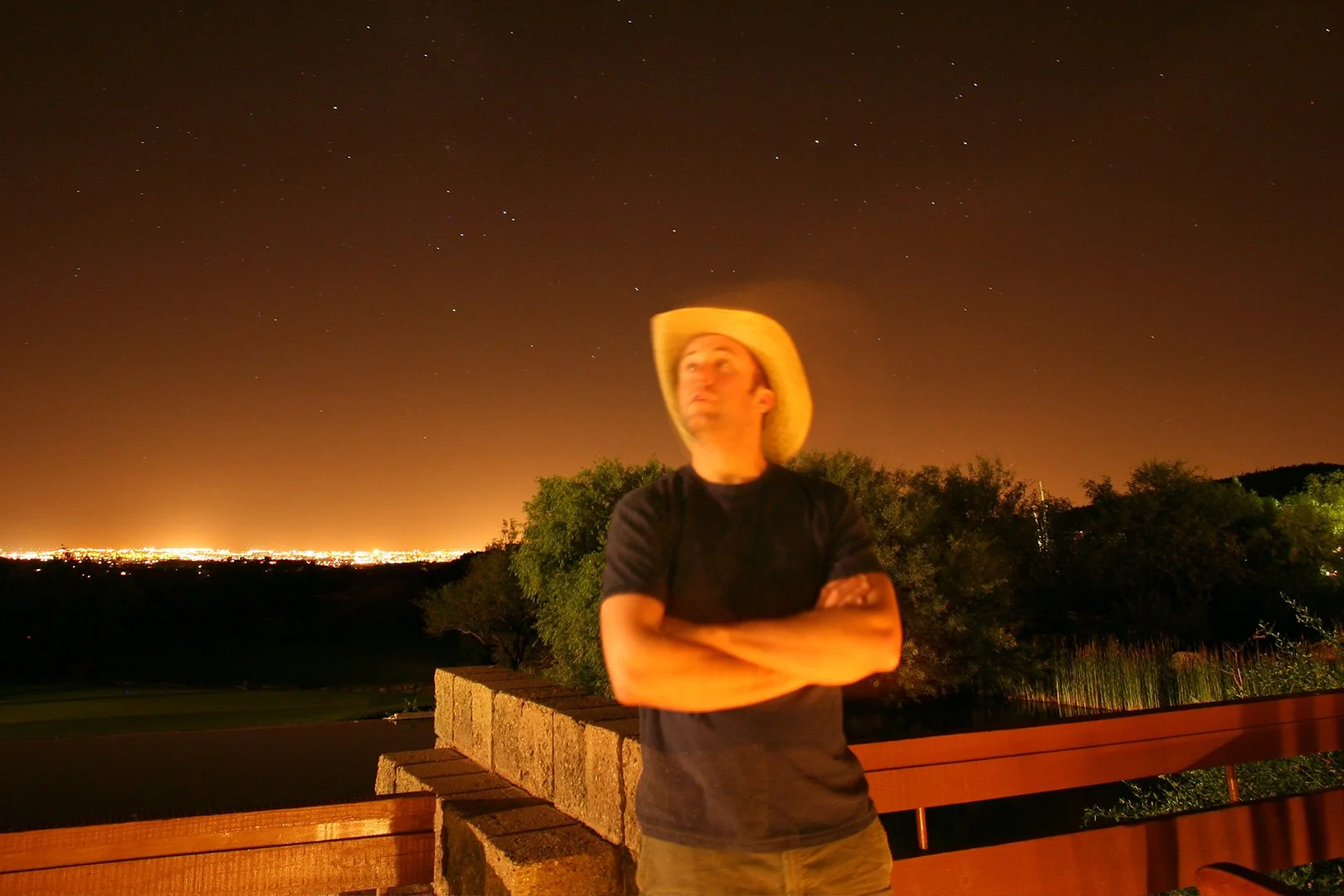The town in rural Maine where Ian Cheney spent much of his childhood has about 4,000 residents. Waldoboro had electric lights, but on a cloudless and moonless night, it was impossible not to be struck by the incredible array of stars visible above. Cheney became deeply curious about the stars, as humans have been for millennia. He followed his passion into amateur astronomy, fashioning his own homemade telescope, and then into astrophotography to capture the wondrous scenes that revealed themselves at night.
The City Dark follows Cheney’s journey to discover the surprising and alarming costs of light pollution and the disappearance of the night sky.
The world’s first light bulb was switched on in 1879, and since then artificial illumination has spread across an increasingly urban globe, radically changing humanity’s relation to the night. Yet light pollution is a phenomenon little noted except by those, like astronomers, whose endeavors have been directly hindered by the changes. Meditating on his dwindling connection to the stars, Cheney wonders about the global consequences of artificial lighting, and in The City Dark he sets out to discover what ecologists, cancer researchers, astrophysicists, philosophers and designers have to say about it. Cheney weaves these interviews with time-lapse images of the night sky, culled from tens of thousands of high-resolution still images shot around the world.
The filmmaker discovers an informative and intriguing cast of characters. Irve Robbins, a Brooklyn-born astronomer running the last remaining observatory in Staten Island, N.Y., is a surprising reminder that stars could once be studied in New York City. Now only the brightest objects shine through the light-polluted sky. Robbins says, “I’ve seen the Milky Way twice — when there were blackouts.” At a vast Hackensack, N.J., warehouse filled with myriad light bulbs, owner Larry Birnbaum shows off antique bulbs, including an original Edison that still works, and explains that successive generations of bulbs have exponentially increased in brightness. Today’s bulbs produce thousands more lumens than earlier ones — often many more lumens than we need.
Cheney leaves New York City seeking darker skies and finds his way to Sky Village, a dark-sky haven for astronomers in rural Arizona. While the village’s denizens come from all walks of life, what draws them together is their need to be close to a dark night sky. Cheney visits a mountaintop in Mauna Kea, Hawaii, considered the best site for professional astronomy in the world.
But astronomers are far from the only ones affected by the worldwide retreat of the night. Biologists along the Florida coast have determined that thousands of hatching sea turtles die every year because they fail to make it to the ocean after they confuse the light-polluted horizon of the land with the starlit horizon of the sea and head the wrong way. Similarly, millions of birds, evolved to navigate by the stars, crash into brightly-lit city buildings each year during migration season. This raises the question: Do humans also need the dark?
Suzanne Goldklang for years worked a night shift selling jewelry on television. Now a breast cancer patient, she is surprised to learn about epidemiologist Richard Stevens’ suggestion of a link between persistent exposure to light at night and increased breast cancer risk.
Artificial light has undoubtedly revolutionized life in numerous positive ways — beating back humanity’s fears of the dark, extending the active day and facilitating productivity and social interaction. Historian Roger Ekirch notes that every civilization has expressed a fear of the dark. Criminologist and former policeman Jon Shane says, “History is replete with examples of poorly lit areas that are transformed by light,” and goes on a nighttime visit to a Newark, N.J., park once riddled with crime. Neighbors attest that the installation of more lighting has made the park markedly safer. But the extent to which increased lighting reduces crime remains controversial; and though Cheney acknowledges that humans are drawn to the light, he also asks if there’s such a thing as too much light.
Notes astrophysicist Tyson, “When you look at the night sky, you realize how small we are within the cosmos. It’s kind of a resetting of your ego. To deny yourself of that state of mind, either willingly or unwittingly, is to not live to the full extent of what it is to be human.”


